Americans’ trust in technology as “plummeted” in the past decade, according to the 2022 Edelman Trust Barometer’s focused look on trust and technology. How might this play into U.S. health citizens’ trust in digital health technology?
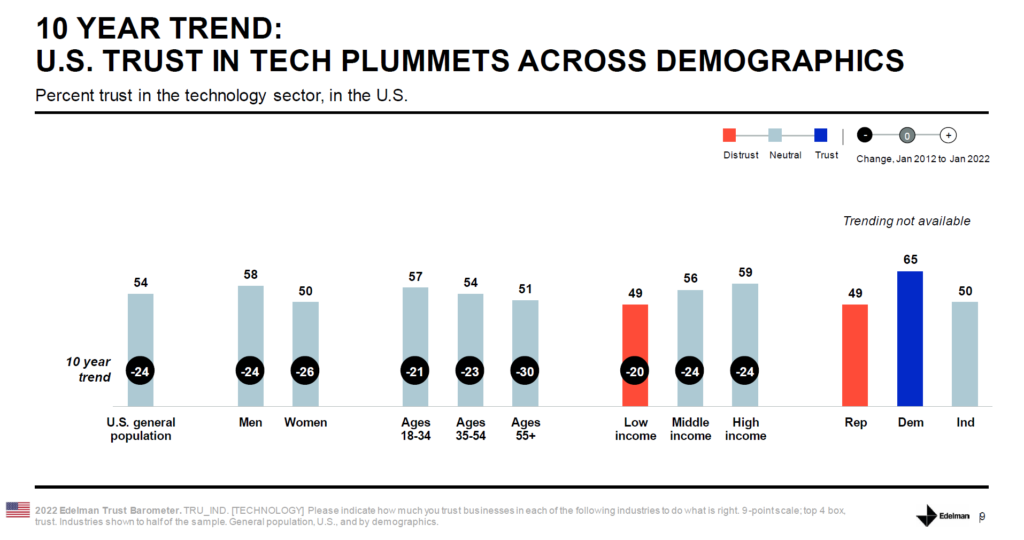
To answer that, let’s start with the macro-view on trust in tech.
Richard Edelman convened a virtual meeting launch for the Trust Barometer’s tech perspectives yesterday, looking broadly at the global study findings. For these trust-tech insights, Edelman surveyed 15,000 citizens between August 31 and September 12, 2022, residing in 12 countries: Australia, Brazil, Canada, China, France, Germany, India, Japan, Mexico, Saudi Arabia, S. Africa, S. Korea, UAE, the UK, and the US.
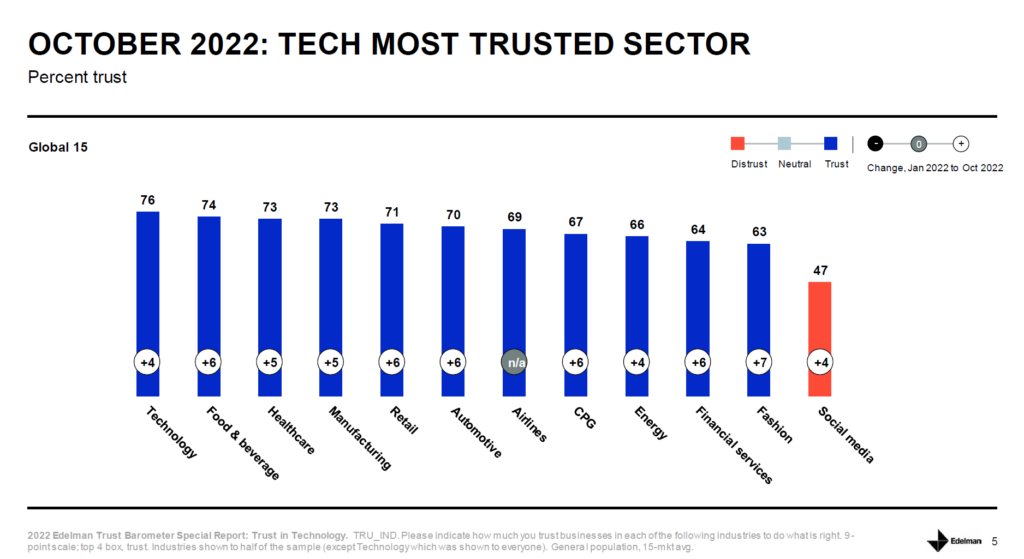
Even with such dramatically declining trust equity, the technology sector enjoys most-trusted sector status in the Edelman poll in 2022, food and beverage, healthcare, and manufacturing aren’t far behind.
Note that social media ranks very much last here…although social media is now seen as embedded into consumers’ definition of “technology.”
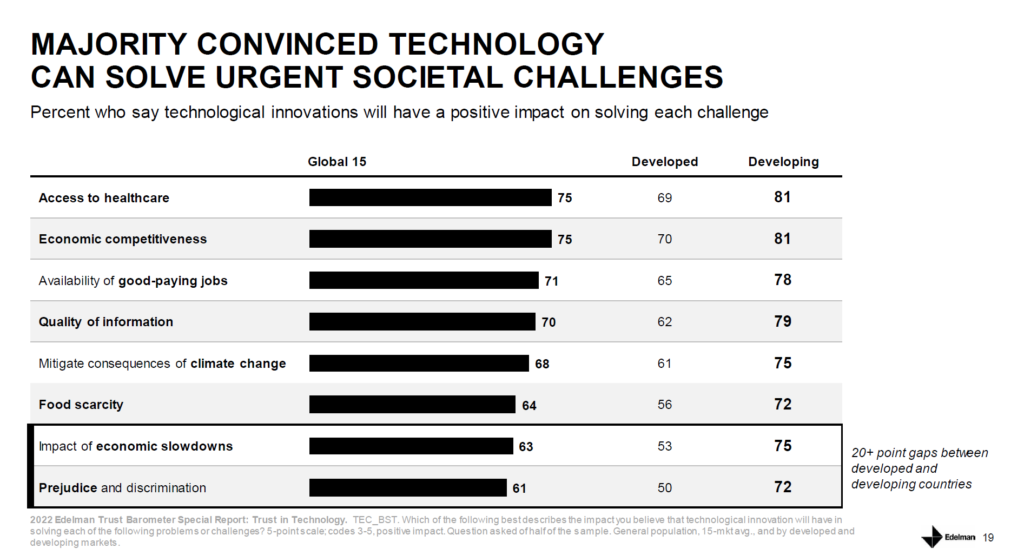
Edelman as a firm has long studied ESG and consumers’ views on corporate social responsibility, asked people about which technology innovations would have a positive impact on solving social challenges.
Focusing in through our health/care lens, you can see in the bar chart from the study that solving access to healthcare and improving economic competitiveness were the top two areas that 75% of global citizens said would have positive impacts across eight social issues examined. In the methodology for this research, “access to healthcare” means “increasing access to high-quality healthcare and improving health outcomes.”
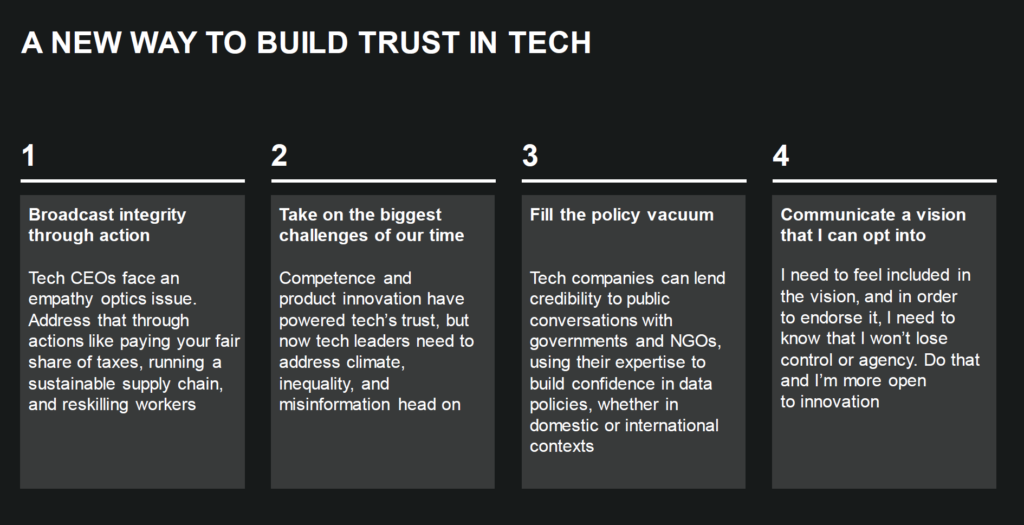
To address the overall decline in peoples’ trust with technology-focused organizations, Edelman offers four prescriptions to re-build trust in tech:
- Broadcast integrity through action, such as paying a fair share of taxes (e.g., Amazon’s and Big Tech companies’ tax treatment)
- Take on the biggest challenges of our, such as healthcare access noted above, along with, say, climate change and equity
- Fill the policy vacuum by adding evidence-based credibility to public debates
- Communicate a vision that “I can opt into,” enabling global citizens to feel included and important.
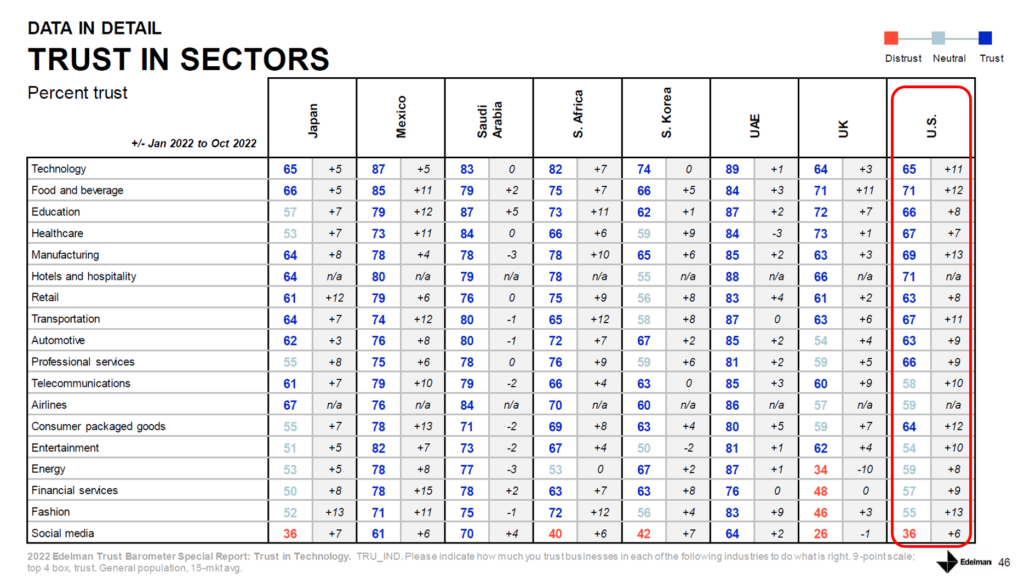
Underneath peoples’ embrace of trust with technology companies, there are several pillars of credibility or downfall that embed consumers’ overall perception of trust….or dis-/mis-trust; these elements include a mix of,
- Stewardship of “my” data, addressing privacy and security
- My ability to control my data
- Foreign governments’ involvement in my data in my own country
- Misinformation and deepfakes flooding media, social and other, and,
- Fears of job loss and equity worsening due to automation (and, I’ll add, concerns about AI bias).
As we look closer into health/care, check out the last chart on trust in sectors detailed for eight nations, including the US to the far right of the table. I’ve put a red circle around that column to compel you to go there : )
The trend changes here date from January 2022 to October 2022, a snapshot on trust during the first three quarters of this year. Healthcare’s trust equity in the U.S. rose by 7 points in 2022 to October. Other sectors’ trust with consumers grew even more dramatically, such as 13 points up for fashion and manufacturing; 12 points up for food & beverage and consumer packaged goods; and 11 points increased for technology and transportation.
Every sector’s trust equity increased among U.S. consumers this year, even in the wake of inflation for food and energy — both sectors with rising trust over the nine months of 2022.
For consumer-facing digital health apps and tools, closely heed the five elements bulleted above having to do with “my data” as a patient: privacy/security and being a good health data steward, giving me empowerment over my personal health information, ensuring no foreign government will have access to the data, speaking honestly and with data about health and healthcare (whether for clinical trials, side effects, or a data breach, for example), and speaking plainly and informatively about the innovative and productive aspects of tech in health care — especially to personalize treatments, bolster health equity and access, and partner with patients in shared decision making.
Thanks to Edelman for their ongoing search for truth in Trust — here, for technology, and throughout the year through other lenses.
For my previous takes on the 2022 Edelman Trust Barometer here in Health Populi, see:
The Trust Deficit is Bad for Health
Go Local and Go Beyond Medical Care to Build Trust in Healthcare
How Trust and Geopolitics Will Impact Health and Business
and for the World Economic Forum,
People have lost trust in healthcare systems because of COVID. How can the damage be healed?


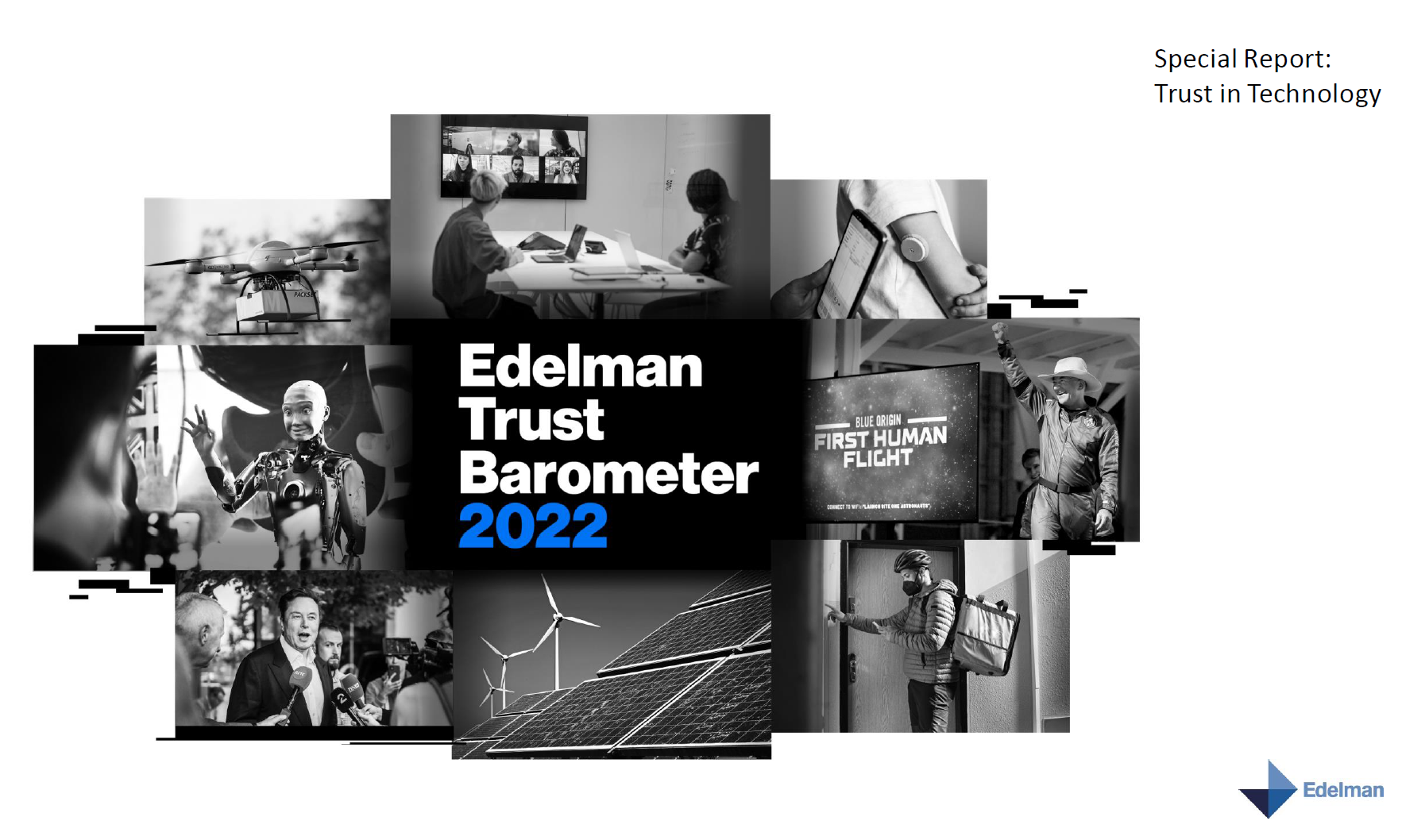


 I'm in amazing company here with other #digitalhealth innovators, thinkers and doers. Thank you to Cristian Cortez Fernandez and Zallud for this recognition; I'm grateful.
I'm in amazing company here with other #digitalhealth innovators, thinkers and doers. Thank you to Cristian Cortez Fernandez and Zallud for this recognition; I'm grateful. Jane was named as a member of the AHIP 2024 Advisory Board, joining some valued colleagues to prepare for the challenges and opportunities facing health plans, systems, and other industry stakeholders.
Jane was named as a member of the AHIP 2024 Advisory Board, joining some valued colleagues to prepare for the challenges and opportunities facing health plans, systems, and other industry stakeholders.  Join Jane at AHIP's annual meeting in Las Vegas: I'll be speaking, moderating a panel, and providing thought leadership on health consumers and bolstering equity, empowerment, and self-care.
Join Jane at AHIP's annual meeting in Las Vegas: I'll be speaking, moderating a panel, and providing thought leadership on health consumers and bolstering equity, empowerment, and self-care.